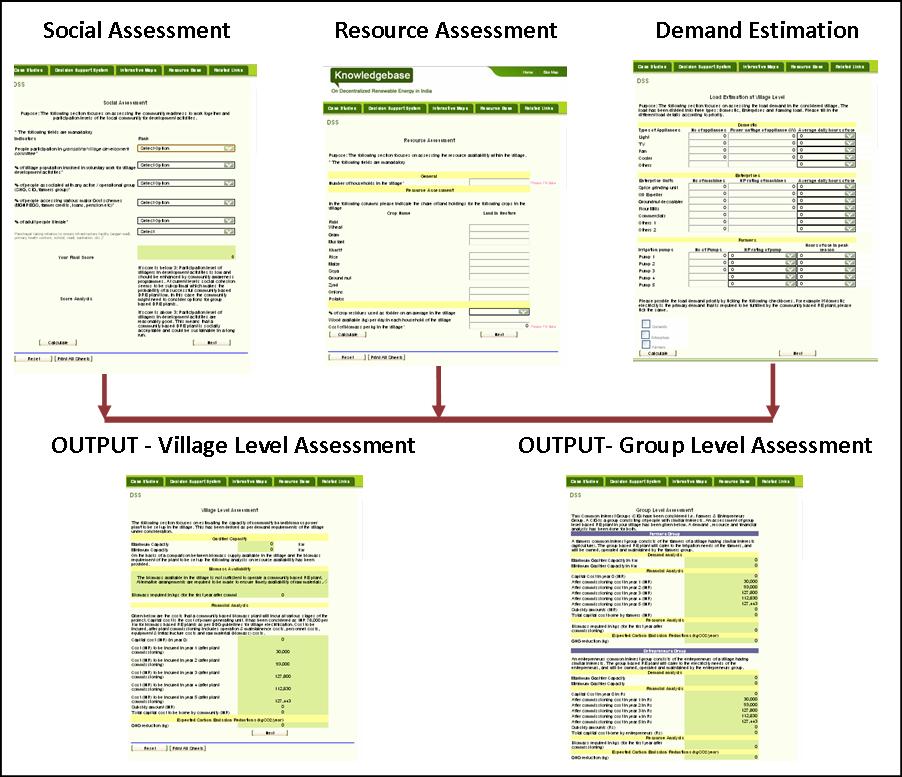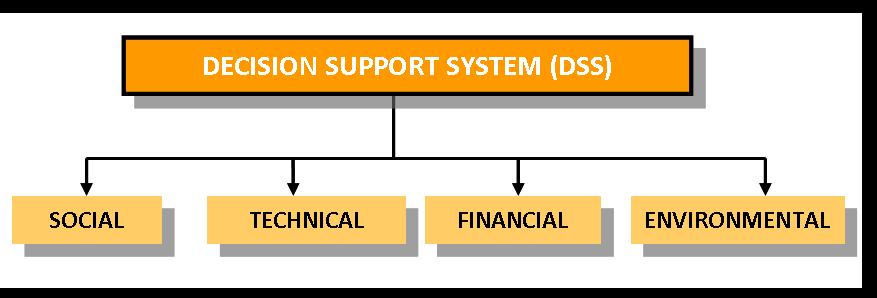Decision Support System for
Decentralised Renewable Energy
I
ndia has a huge demand for increased access to energy services. More than 57 per cent of the population lacks reliable access to electricity. As India adds over 400 million people to the mainstream economy in the coming years, there will be increased energy demands. Coal-fired power plants generate 60 per cent of the country’s electricity. To prevent the rapid growth of India’s greenhouse gas emissions, it is important to promote energy efficiency and renewable energy sources. Clean energy addresses energy security, employment and climate change. And yet, very few projects have been able to demonstrate viable and scalable models for provision of energy services to the marginalised and rural communities.There have been several Government initiatives to support clean energy, especially biomass, biogas and solar initiatives. Of equal importance is India’s strong tradition of implementing measures through villages based on local knowledge and experiences. The exchange of experiences between communities and cooperation between local authorities and private actors has played an important role in situations where breakthroughs have been made. There is an urgent need to apply multi-stakeholder based ‘learn and apply’ approaches to the decentralised renewable energy (DRE) sector.

To build this network, Development Alternatives (DA), in association with UNEP/GRID-Arendal has developed a knowledge base on energy efficiency and decentralised renewable energy in India. The long-term vision is to help communities in scaling up renewable energy solutions that will enhance access to energy and create sustainable livelihoods in large numbers. The overall purpose of the programme is to create a learning platform for the implementation of projects in the decentralised renewable energy arena that capitalises upon local skills and resources, with women in key operational roles. This knowledge base consists of a ‘Decision Support System (DSS)’ for DRE, ‘Compendium of Case Studies’ and other resources on decentralised renewable energy in India.
In generic terms, Decision
Support System (DSS) is a tool that facilitates the process of decision
making by breaking down a complex problem into simple components. The DSS,
an Information and Communication Technology (ICT) based tool, will provide
need-based information on technical, social, financial and environmental
aspects of DRE technology options to help decision makers in taking informed
decisions. The DSS is web hosted for the benefit of the larger community and
it is envisaged to help communities in other developing countries to take
appropriate decisions regarding RE projects.

Components of DSS
• Social
• Technical
• Financial
• Environmental
The social component is evaluated through the ‘Social Assessment’ sheet. It helps the decision makers assess community readiness to set up the DRE plant and, accordingly, suggests different delivery models on DRE plants, namely ‘Village level’ and ‘Group level’ DRE initiatives.
The technical component is evaluated through the ‘Resource Assessment’ and ‘Demand Estimation’ sheets. Resource assessment considers mainly two types of resources, i.e., crop residue and wood collected by villagers and helps in supply side assessment. Demand Estimation helps us assess the current and future load demands of the villagers. Thus, the technical component provides technical details, primarily the capacity of the DRE plant to be installed.
The financial component is inbuilt in the ‘Resource Assessment’ and ‘Demand Estimation’ sheets and it gives an estimate of the total installation cost of the DRE plant, the costs to be incurred after plant commissioning for five years (includes operation and maintenance costs, personnel costs, equipment and infrastructure costs and raw material costs) and a fund gap analysis.
The environmental component is also inbuilt in the ‘Resource Assessment’ and ‘Demand Estimation’ sheets and gives the expected reduction in carbon emissions in kg CO
2 per year (due to installation of DRE plant).Target Group
• Communities (PRI members, farmers, etc.)
• Entrepreneurs
• NGOs
• Funding agencies
• Policy makers
Applicability
The present version of DSS is a prototype, i.e., it has been designed for taking decisions only related to one technology (biomass-based DRE solutions). It is well suited for DRE plants in semi arid regions of India and small-scale DRE plants, i.e., plants with a scale upto 1 MW as the assumptions have been taken for the same.
Way Forward
This is the first version and acts as a prototype of the DSS tool. It will be developed further to include more parameters in order to make it more viable. q
Shivani Mathur
smathur@devalt.org